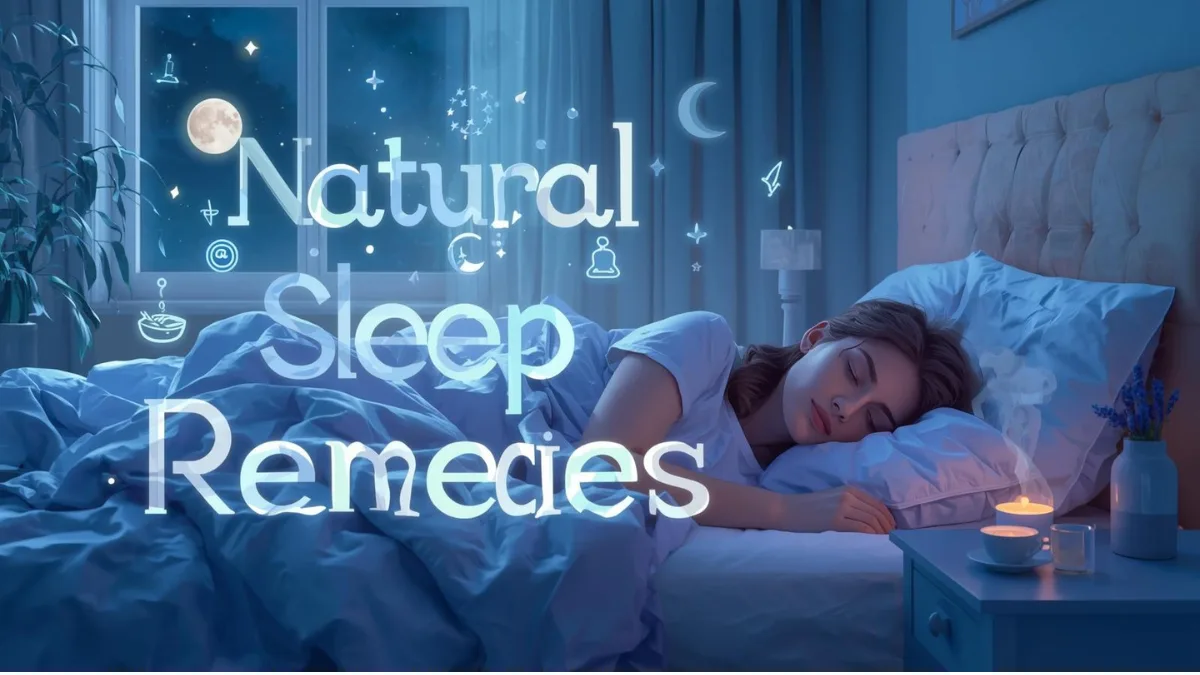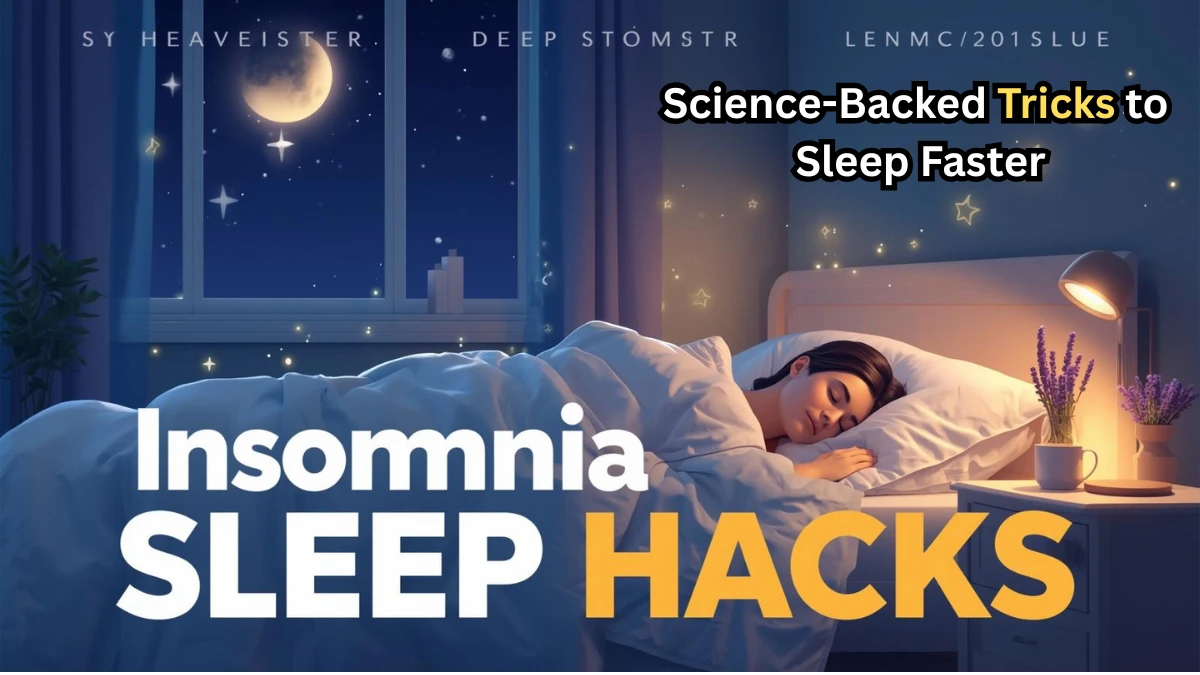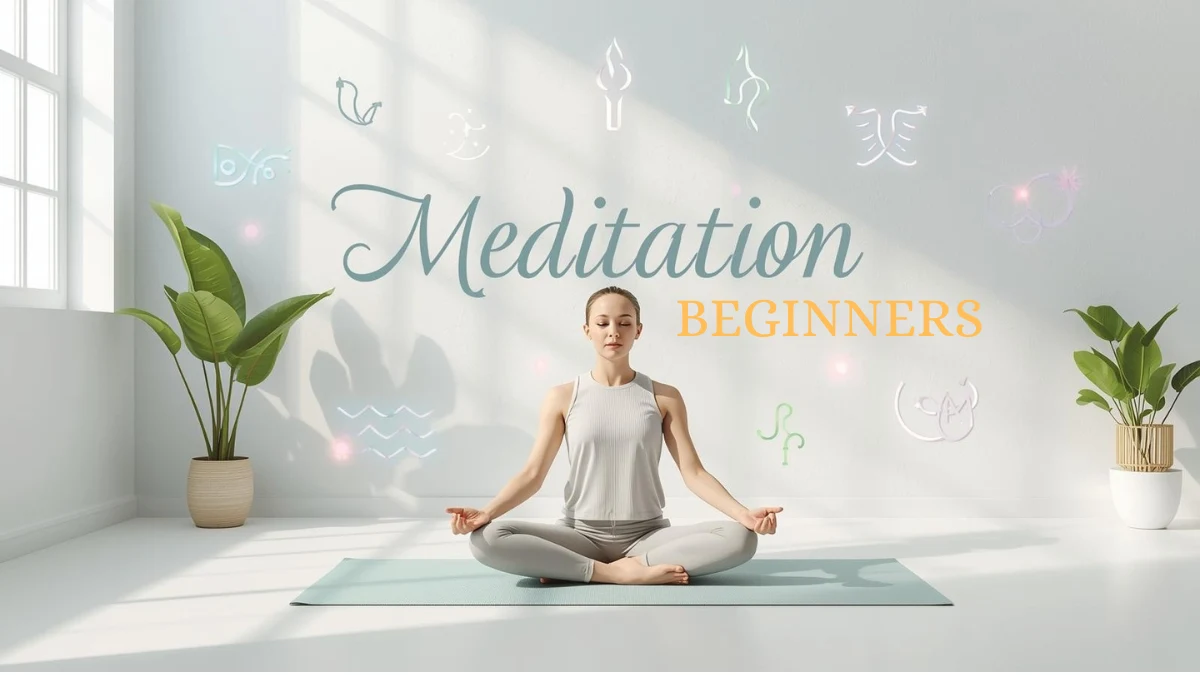🌙 Can’t Sleep at Night? Discover 5 Natural Remedies, doctor-recommended remedies for insomnia that improve sleep quality—no pills required!
Sleep problems affect millions of adults worldwide 😴. According to the National Sleep Foundation, over 30% of adults report insomnia symptoms, including difficulty falling asleep, staying asleep, or waking up too early.
Poor sleep can lead to mental fatigue, stress, anxiety, and reduced productivity. But the good news is, you don’t need medication to fix it! Here are 5 natural remedies for insomnia that actually work. These are doctor-approved, science-backed, and easy to implement.
1️⃣ Mindful Breathing & Meditation – Calm Your Mind 🧘♀️
Struggling with racing thoughts or anxiety that keeps you awake at night? Mindful breathing and meditation are clinically proven methods to calm the nervous system, reduce cortisol levels, and enhance sleep quality.
How to Practice:
- Sit or lie down comfortably and gently close your eyes.
- Inhale deeply for 4 counts, hold your breath for 4 counts, then exhale slowly for 6 counts.
- Repeat this cycle for 5–10 minutes before bedtime.
Real-Life Case Study:
Emma, 29, suffered from nightly insomnia caused by work-related stress. By practicing just 10 minutes of mindful breathing daily, she was able to fall asleep faster within one week.
Scientific Backing 🔬:
Research from Harvard Medical School confirms that mindfulness meditation significantly reduces stress and improves sleep quality, making it an effective tool for insomnia.
Expert Insight 👩⚕️:
“Mindful breathing is a simple yet powerful way to signal your brain that it’s time to rest.” – Dr. Neha Sharma
2️⃣ Herbal & Natural Remedies for Better Sleep 🍵
Looking for natural sleep remedies that actually work? Certain herbs and aromatherapy solutions can promote relaxation and treat insomnia without side effects.
Top Herbal Sleep Aids:
- Chamomile Tea – Soothes the nervous system and naturally induces drowsiness.
- Lavender Oil – Aromatherapy helps reduce anxiety and improve sleep quality.
- Valerian Root – Clinically studied for managing mild insomnia.
Real-Life Case Study:
Sarah, 32, added chamomile tea and lavender aromatherapy to her nightly routine. Within 2 weeks, she experienced deep, uninterrupted sleep.
Scientific Backing 🔬:
A 2021 study in the Journal of Sleep Research found that chamomile tea significantly reduces insomnia symptoms and enhances sleep duration.
Expert Insight 👨⚕️:
“Herbal remedies like chamomile and lavender are safe, natural options for improving sleep quality and establishing healthy sleep habits.” – Dr. Anjali Desai
3️⃣ Maintain a Sleep-Friendly Environment 🛏️
Struggling to get quality rest? Sleep hygiene plays a crucial role in healthy sleep habits and overall sleep improvement. A relaxing, well-organized bedroom can drastically enhance your ability to fall and stay asleep.
How to Create a Sleep-Friendly Environment:
- Keep the room cool (65–68°F) 🌡️ – Optimal temperature supports natural sleep cycles.
- Reduce noise and light – Use earplugs or blackout curtains for minimal disturbances.
- Comfortable bedding – Invest in mattresses and pillows that suit your sleeping posture.
Real-Life Case Study:
Michael, 35, struggled with falling asleep due to ambient noise. By adding blackout curtains and a white noise machine, he started falling asleep within 10 minutes and experienced longer, uninterrupted sleep.
Scientific Backing 🔬:
According to the National Sleep Foundation, a proper sleep environment improves sleep latency and reduces nighttime awakenings, making it easier to achieve restorative sleep.
Expert Insight 👩⚕️:
“A calm, dark, and cool bedroom signals your body to produce melatonin naturally, supporting healthy sleep habits.” – Dr. Priya Kapoor
4️⃣ Limit Screen Time & Practice a Digital Detox 📵
Struggling with insomnia due to late-night screen use? Reducing screen time before bed is a proven stress relief technique that helps your body naturally prepare for sleep.
Tips for a Better Digital Detox:
- Avoid smartphones and laptops at least 1 hour before bedtime.
- Switch to night mode if screen use is unavoidable.
- Engage in calming offline activities like reading, journaling, or gentle stretching.
Real-Life Case Study:
Laura, 28, couldn’t resist late-night scrolling on social media, which disrupted her sleep. By turning off screens 60 minutes before bed, she started falling asleep faster and woke up refreshed and energized.
Scientific Backing 🔬:
A study by the University of Pennsylvania found that reducing evening screen exposure significantly improves sleep onset and quality.
Expert Insight 👨⚕️:
“Digital detox before bedtime is one of the simplest and most effective ways to fight insomnia naturally.” – Dr. Suresh Patil
5️⃣ Consistent Sleep Schedule & Relaxation Routine 🌙
Looking to improve sleep naturally? Maintaining a consistent sleep-wake schedule is one of the most effective sleep improvement tips. It helps regulate your body’s internal clock and enhances overall healthy sleep habits.
How to Build a Sleep-Friendly Routine:
- Go to bed and wake up at the same time every day, even on weekends.
- Include relaxation routines like reading, taking a warm bath, or light stretching.
- Avoid caffeine or heavy meals before bedtime to prevent sleep disruption.
Real-Life Case Study:
Tom, 40, struggled with irregular sleep due to travel and hectic meetings. By following a consistent sleep schedule combined with nightly stretching, he started enjoying 7–8 hours of quality sleep each night.
Scientific Backing 🔬:
Research shows that consistent sleep schedules enhance REM sleep, improve mood, and reduce insomnia, reinforcing your body’s natural circadian rhythms.
Expert Insight 👩⚕️:
“Your body thrives on routine. A consistent sleep schedule reinforces natural circadian rhythms, making it easier to fall and stay asleep.” – Dr. Kavita Reddy
Bonus Tips for Better Sleep 🌟
- Journaling before bed 📝 to clear your mind.
- Mindful breathing for 5 minutes.
- Light meditation or progressive muscle relaxation.
- Avoid alcohol or nicotine near bedtime.
📚 Sources (credible references)
- National Sleep Foundation – https://www.thensf.org
FAQs Section ❓
Q1: How quickly do natural remedies work?
A: Some remedies like meditation and aromatherapy provide immediate relaxation, while habits like sleep schedule adjustments take 1–3 weeks for full effect.
Q2: Can these remedies replace sleep medications?
A: For mild to moderate insomnia, yes. Severe chronic insomnia may require medical guidance.
Q3: How long should I practice these habits?
A: Daily practice is ideal. Consistency is key for long-term sleep improvement.
Q4: Are herbal remedies safe?
A: Most herbs like chamomile, lavender, and valerian root are safe. Consult a doctor if you’re on other medications.
Call-to-Action 💬
- “Which natural sleep remedy will you try tonight? Comment below!”
- “Share these tips with friends or family struggling with insomnia. Help them sleep better naturally!”
✅ Conclusion:
Struggling to sleep at night is common 🌙, but natural, doctor-recommended remedies like meditation, herbal teas, sleep hygiene, digital detox, and consistent routines can dramatically improve sleep quality. No pills needed!










